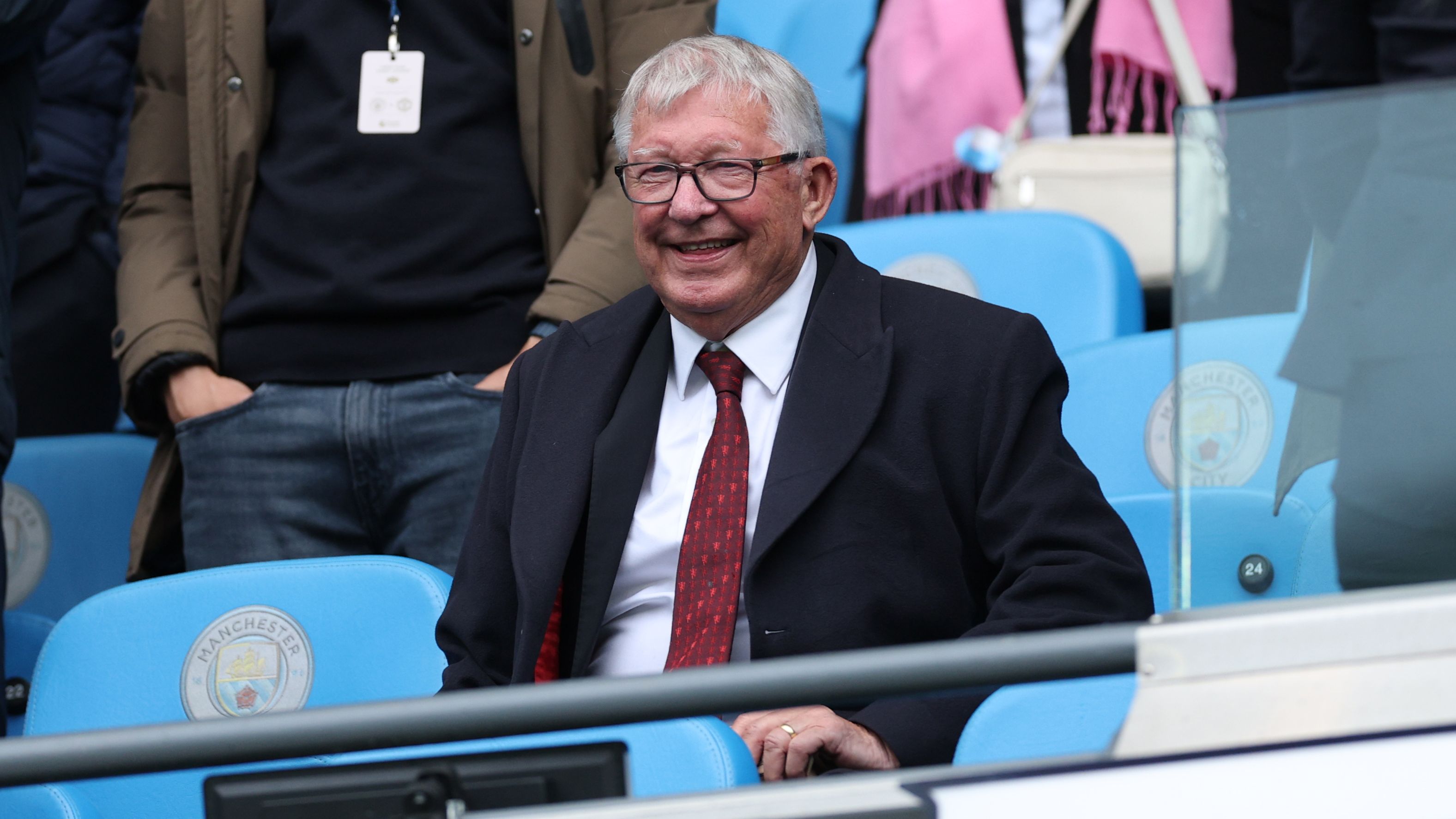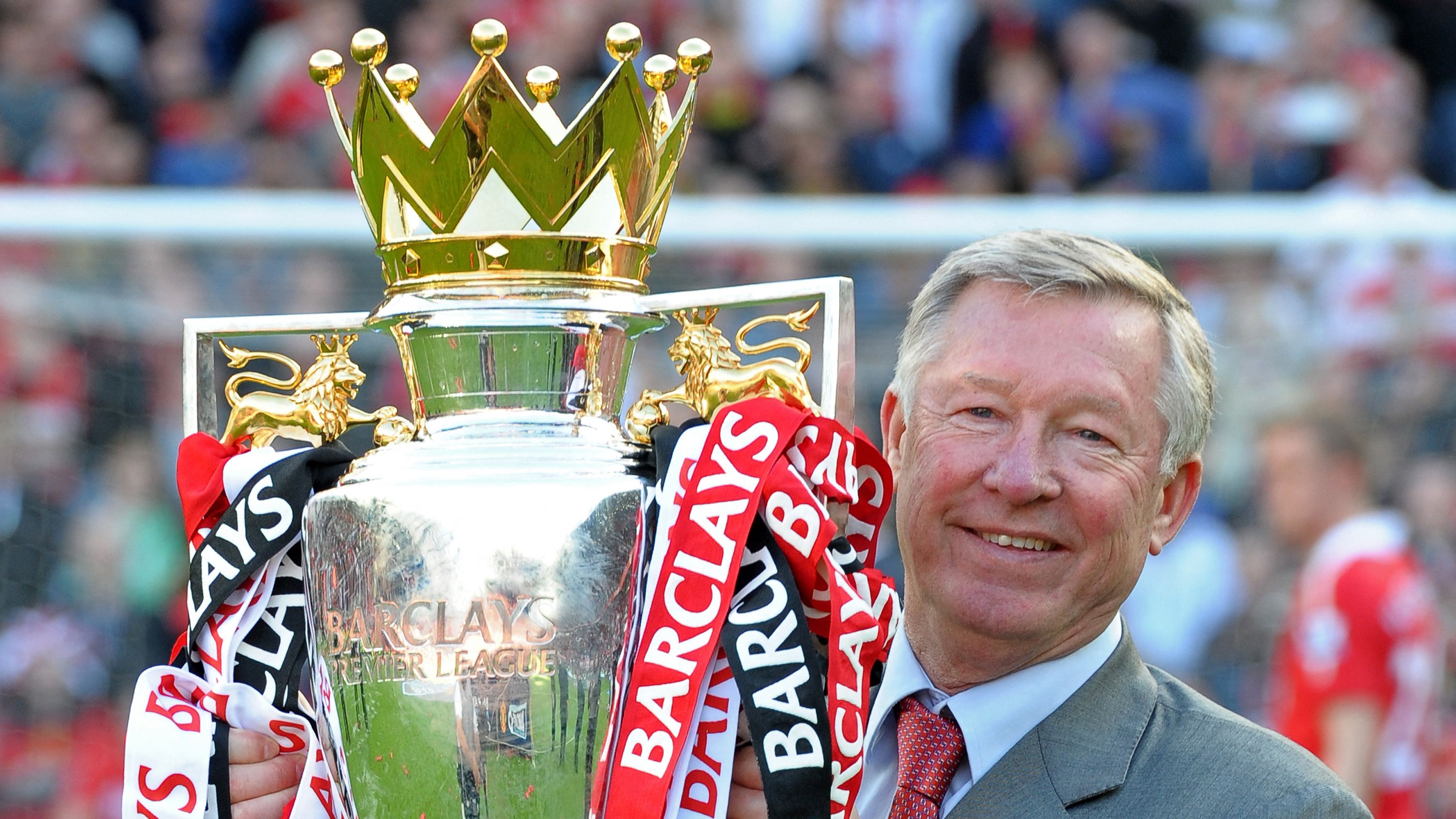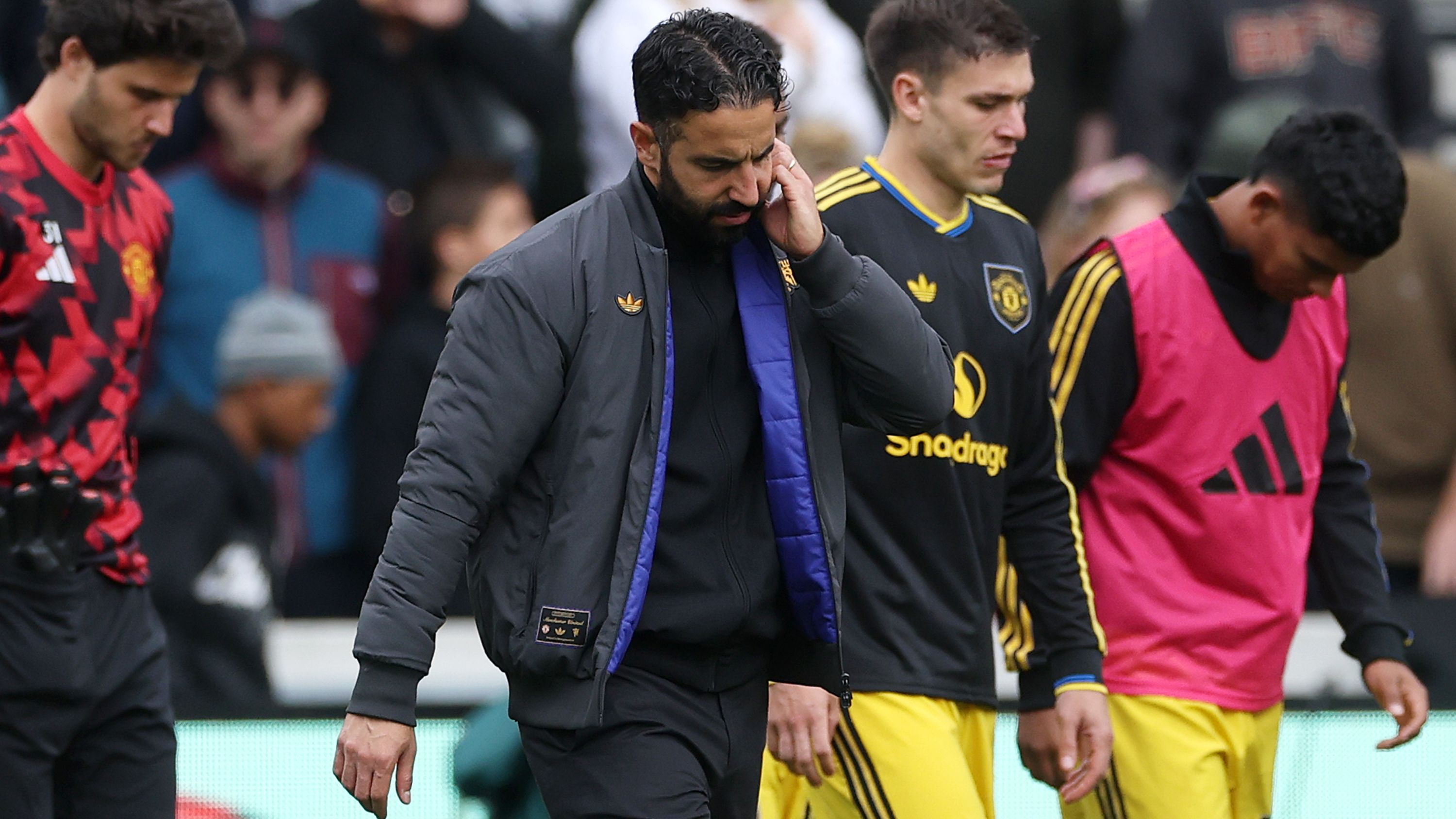The Financial Toll of Managerial Turnovers at Manchester United
Manchester United’s ongoing challenges with coaching changes have resulted in enormous expenditures on sacked managers, totaling a massive £69.8 million since Sir Alex Ferguson’s exit, with potential for even greater outlays if current head coach Ruben Amorim faces dismissal. This examination reveals the club’s costly pattern of leadership shifts and their impact on performance and finances.



Managerial Transitions Post-Ferguson
Following Sir Alex Ferguson’s retirement, a series of coaches have attempted to steer Manchester United, yet many have encountered significant hurdles. David Moyes, chosen as Ferguson’s successor in 2013, was let go after just 10 months due to the team’s underwhelming seventh-place finish in the Premier League, marking the first time in almost 20 years they missed out on the Champions League. Louis van Gaal stepped in next, securing an FA Cup victory in 2016-the club’s first major honor since Ferguson’s departure-but he was abruptly removed shortly after. Jose Mourinho then took the helm, achieving success by claiming three titles in his initial campaign: the Europa League, League Cup, and Community Shield, a feat that established him as the first coach to capture multiple key trophies in a debut season at the club. Ole Gunnar Solskjaer guided the side to a runner-up spot in the Premier League and a Europa League final appearance, though he ultimately departed without any titles after three years. Ralf Rangnick served as an interim leader before Erik ten Hag arrived, delivering the team’s first major trophy in years with the League Cup win in 2023 and an FA Cup triumph in 2024. Despite these accomplishments, ten Hag was dismissed amid a rocky beginning to the 2024-2025 season. Now, the spotlight intensifies on Amorim, whose team ended last season in 15th and currently languishes in 14th after six matches.
Breakdown of Sacking Expenses
The financial repercussions of these changes are stark, with payouts to dismissed coaches and their staffs accumulating over time. Below is a reorganized overview of the costs associated with each transition, highlighting the growing economic burden on the club:
- Sir Alex’s Staff – £2.4m
- David Moyes (2013/14) – £5.2m
- Louis van Gaal (2014/16) – £8.4m
- Jose Mourinho (2016/18) – £19.6m
- Ole Gunnar Solskjaer (2018/21) – £9.1m
- Ralf Rangnick (2021/22) – £14.7m
- Erik ten Hag (2022/24) – £10.4m
Overall Financial Impact
the cumulative expense from these dismissals reaches an impressive total of £69.8 million (equivalent to $93.8 million), underscoring the high price Manchester United pays for managerial instability and reflecting a pattern of investment in leadership that hasn’t always translated to sustained success.
Ferguson’s Legacy of Dominance
Sir Alex Ferguson’s command of Manchester United from 1986 to 2013 stands as the club’s golden era, elevating them to a powerhouse in both domestic and continental competitions. When he assumed control, the team had gone 19 years without a league championship, but under his guidance, they achieved extraordinary milestones. Ferguson’s era yielded an astounding 38 trophies, such as 13 Premier League crowns, two UEFA Champions League victories, five FA Cups, and four League Cups. His triumphs stemmed from strategic mastery, resolute guidance, and a unique talent for squad reconstruction. He cultivated emerging stars, including the famed “Class of ’92” group that spawned icons like Ryan Giggs, David Beckham, and Paul Scholes, while seamlessly incorporating elite players such as Eric Cantona, Cristiano Ronaldo, and Wayne Rooney. This adaptability in tactics and unyielding drive for victory sustained Manchester United’s supremacy for more than two decades.
Current Challenges Under Amorim
Manchester United’s recent performances have been marred by erratic results, with the team unable to string together wins across any tournament under Amorim’s direction. This lack of consistency has sparked widespread worry among supporters and analysts, leading to debates about the manager’s sustainability at the helm. Even so, minority owner Sir Jim Ratcliffe is said to remain supportive. However, terminating Amorim’s contract would incur a substantial £12 million ($16.1 million) cost, further inflating the club’s already hefty severance bills.
Upcoming Fixtures and Stakes
Looking ahead, Manchester United faces a demanding schedule starting with a home clash against Sunderland at Old Trafford on October 4th, followed by a tough away encounter with Liverpool at Anfield on October 19th. Subsequent games include meetings with Brighton, Nottingham Forest, and Tottenham. Continued losses or subpar displays could jeopardize Amorim’s position, potentially adding another £12 million to the club’s expenses and perpetuating the cycle of managerial upheaval.
The Financial Burden of Managerial Turnover at Manchester United
Payouts Since Sir Alex Ferguson’s Departure
Manchester United, one of the world’s most iconic football clubs, has faced a staggering financial toll from frequent managerial changes since the retirement of legendary manager Sir Alex Ferguson in 2013. According to reports on the costs associated with sacked coaches, the club has shelled out an eye-watering £69.8 million in severance payouts to managers who were let go. This figure highlights the high price of instability in the managerial hotseat, a common challenge in the Premier League where performance pressures can lead to swift dismissals.
To break it down, the payouts stem from contract settlements for coaches like David Moyes, Louis van Gaal, Jose Mourinho, Ole Gunnar Solskjaer, and others who couldn’t deliver the sustained success that defined Ferguson’s era. For instance, these settlements often include remaining salary portions, bonuses, and legal fees, turning each managerial exit into a multimillion-pound hit. Imagine pouring that money into player transfers or youth development instead – it’s a reminder of how managerial changes can drain resources from other key areas of the financial toll of managerial changes at Manchester United.
- Key Payout Examples: David Moyes’ dismissal cost around £5 million, while Jose Mourinho’s exit in 2018 racked up approximately £19.5 million. Ole Gunnar Solskjaer’s severance was estimated at £7.5 million, contributing to the cumulative £69.8 million figure.
- Factors Driving Costs: Contracts often include clauses for payouts based on early termination, which can escalate if the manager is dismissed without cause. This underscores the broader impact of financial tolls in football, where clubs like Manchester United must balance ambition with fiscal responsibility.
Impact on Club Finances and Operations
The £69.8 million in payouts doesn’t just vanish; it ripples through Manchester United’s finances, affecting everything from transfer budgets to ticket prices and fan engagement. In a sport where profitability and sustainability regulations (like those from the Premier League) are tightening, these expenditures can limit a club’s ability to invest in top talent or infrastructure. For Manchester United fans, this means potential cutbacks in squad building, which could exacerbate on-pitch struggles and prolong the search for post-Ferguson glory.
From a broader perspective, the financial toll of managerial changes extends beyond immediate costs. It can erode shareholder value, as seen in dips in the club’s stock price during turbulent periods. Clubs might also face higher wage bills if interim managers are brought in, adding layers to the overall burden. This situation isn’t unique to Manchester United; it’s a wake-up call for the football industry on how unchecked turnover can lead to long-term financial instability.
Potential Increases with Ruben Amorim
With Ruben Amorim now at the helm, there’s buzz about whether his tenure could add to the £69.8 million tally if things don’t go as planned. Amorim’s appointment came with a reported transfer fee from Sporting Lisbon and a lucrative contract, meaning any early dismissal could inflate the total payouts even further. Experts suggest that if Amorim faces the sack within his first couple of seasons, severance could exceed £10 million, pushing the cumulative figure past £80 million and highlighting the ongoing financial toll of managerial changes at clubs like Manchester United.
This scenario raises questions about risk management in high-stakes hiring. Amorim’s success or failure could hinge on factors like team chemistry and transfer window decisions, but the financial implications are clear: every managerial gamble carries a price tag that fans ultimately bear through higher matchday costs or reduced investment elsewhere.
Benefits of Stable Management in Football
While the focus is on costs, it’s worth exploring the benefits of avoiding frequent managerial shake-ups. Stable leadership, as seen in clubs like Liverpool under Jurgen Klopp, can foster a cohesive team culture, improve player performance, and boost long-term financial health. For Manchester United, maintaining a manager for several seasons could reduce payout expenses and allow for strategic planning, ultimately enhancing the club’s competitiveness in the Premier League and beyond.
In essence, stability translates to better resource allocation, where funds are redirected toward player development or fan experiences rather than severance deals. This approach not only cuts down on the financial toll but also builds a resilient club identity, making it a smart strategy for any team dealing with managerial turnover.
Practical Tips for Managing Coach Contracts
If you’re a football enthusiast or even a club executive, here are some practical tips to mitigate the financial toll of managerial changes:
- Incorporate Performance Clauses: Add contract terms that tie payouts to specific milestones, like league positions or cup wins. This way, clubs can reduce severance if underperformance is evident.
- Shorten Initial Contracts: Start with 18-24 month deals for new managers, allowing time to assess fit without long-term financial commitments.
- Build in Buyout Options: Negotiate clauses that let clubs terminate contracts at a lower cost if certain conditions are met, helping to manage the overall payouts more effectively.
- Seek Expert Advice: Consult financial advisors or legal teams specializing in sports management to forecast potential costs and avoid surprises like those seen at Manchester United.
These tips can help clubs navigate the complexities of the financial toll of managerial changes, promoting smarter decision-making in the high-pressure world of football.
Case Studies from Other Premier League Clubs
Looking at case studies from rival clubs offers valuable insights into handling managerial transitions. For example, Chelsea’s frequent changes under Roman Abramovich led to massive payouts, similar to Manchester United’s £69.8 million, but recent stability under managers like Thomas Tuchel showed how patience can yield Champions League success without excessive costs.
In contrast, Arsenal’s approach with Arsene Wenger demonstrated the benefits of long-term commitment, saving millions in payouts and building a sustainable model. These examples illustrate how clubs can learn from the financial toll of managerial changes at Manchester United, adapting strategies to foster growth rather than disruption.
First-Hand Experiences in Football Management
Drawing from general insights shared by former managers and insiders, the reality of these payouts hits hard on a personal level. One ex-Premier League coach recounted how the pressure to deliver results often overshadows the human side, leading to abrupt dismissals that cost clubs dearly. In Manchester United’s case, the post-Ferguson era has been a rollercoaster, with insiders noting that the £69.8 million figure reflects not just money lost, but missed opportunities for on-field innovation.
This first-hand perspective emphasizes the need for clubs to prioritize cultural fits and clear expectations, turning potential financial tolls into stories of triumph rather than regret.[başvurmak:[başvurmak:https://www.manchester.ac.uk/][başvurmak:[başvurmak:https://www.manchester.ac.uk/study/undergraduate/courses/2025/03519/bsc-management/][başvurmak:[başvurmak:https://www.manchester.ac.uk/study/masters/courses/list/08025/msc-aerospace-engineering/]









